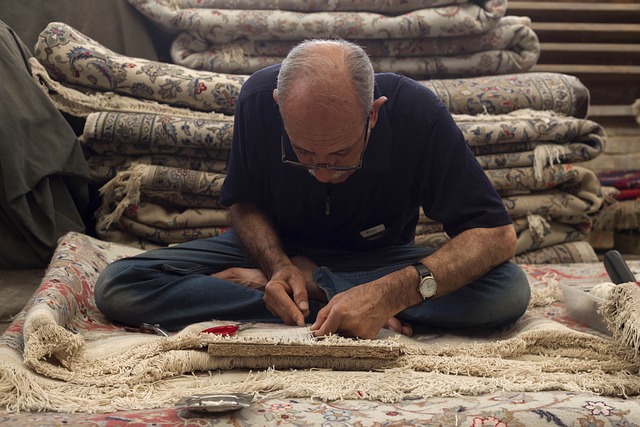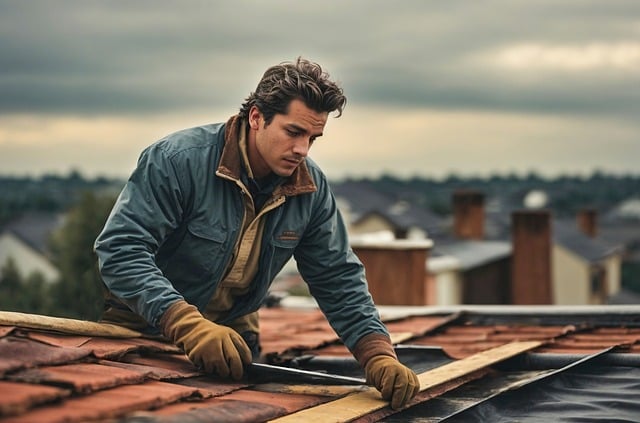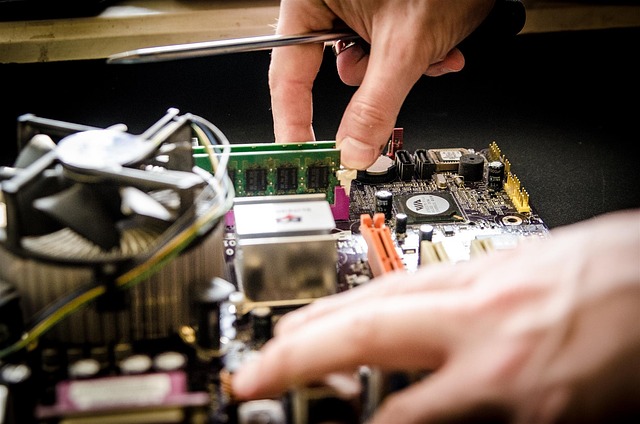Foundation Repair Specialists play a pivotal role in safeguarding buildings constructed on weak or unstable soils. They employ advanced techniques like deep foundation solutions, soil stabilization treatments, and engineering strategies to improve bearing capacity and mitigate issues like settlement, heave, and sinking caused by adverse conditions. Early identification of structural problems, coupled with soil testing and geotechnical investigations, allows specialists to recommend effective stabilization methods. Techniques such as deep soil mixing, chemical stabilizers, and mechanical methods have revolutionized concrete soil stabilization, ensuring long-term stability for structures in diverse environments. Choosing the right method based on site-specific factors prevents future issues, while regular maintenance and eco-friendly practices further extend the life of stabilization treatments.
Concrete soil stabilization is a critical process ensuring structural integrity and longevity. This comprehensive guide delves into the world of concrete soil stabilization, highlighting its significance through the lens of foundation repair specialists. We explore common issues like soil instability and erosion, shedding light on their impact on structures. Advanced techniques, from traditional to innovative methods, are examined, along with case studies showcasing successful projects. Learn how the right stabilization method can prevent costly repairs, foster environmental sustainability, and preserve architectural assets, all while relying on experts in foundation repair.
Understanding Concrete Soil Stabilization: The Role of Foundation Repair Specialists

Concrete soil stabilization is a critical process that involves improving the strength and stability of soil to support concrete structures. It’s particularly crucial for areas with weak or unstable soil, where traditional construction methods might not be sufficient. Foundation repair specialists play a pivotal role in this process, offering expertise and specialized techniques to ensure structural integrity.
These professionals employ various methods like deep foundation solutions, soil stabilization treatments, and advanced engineering strategies to enhance the bearing capacity of soil. By understanding the unique challenges posed by different soil types, they tailor their services to meet specific project requirements. Foundation repair specialists are equipped to handle issues such as settlement, heave, or sinking of structures, which can be caused by factors like poor soil conditions, excessive moisture, or changes in groundwater levels.
Identifying Soil Instability Issues and Their Impact on Structures

Soil instability is a common issue that can significantly impact structures and buildings. Identifying these problems early on is crucial for preventing costly repairs in the future, especially when dealing with foundation stability. Foundation Repair Specialists often encounter situations where soil instability leads to structural damage. This can occur due to various factors such as poor soil compaction, high water tables, or inadequate drainage, causing the soil to expand and contract over time. As a result, foundations may settle unevenly, leading to cracks in walls, floors, and even structural failure in severe cases.
Recognizing signs of soil instability is essential for homeowners and builders alike. Uneven floors, visible cracks in walls or ceilings, and doors that stick or swing slightly can indicate underlying issues. Foundation Repair Specialists use advanced techniques like soil testing and geotechnical investigations to assess these problems and recommend suitable stabilization methods. Early intervention can save significant expenses and ensure the long-term integrity of structures built on unstable soils.
Common Causes of Soil Erosion and Settlement

Soil erosion and settlement are prevalent issues that can significantly impact structures, especially those built on susceptible soils. Common causes include heavy rainfall, inadequate drainage systems, and the weight of buildings or heavy equipment. These factors often lead to uneven soil compaction, resulting in subsidence and potential damage to foundations. Foundation Repair Specialists address these challenges by implementing specialized techniques to stabilize the soil, ensuring structural integrity and longevity.
One primary method is deep soil mixing, where a mix of cementitious materials is incorporated into the existing soil to enhance its strength and stability. This process effectively prevents erosion and settlement, acting as a solid foundation for buildings. Additionally, geotextiles and other reinforcement materials can be employed to strengthen loose soils, making them more resistant to environmental factors.
Advanced Techniques for Concrete Soil Stabilization

In the realm of concrete soil stabilization, advanced techniques have emerged as game-changers, transforming the way foundation repair specialists tackle challenging projects. These innovative methods go beyond traditional approaches, offering more effective and lasting solutions for unstable soils. One such technique involves the use of chemical stabilizers, which are precisely engineered to strengthen the soil’s structure. By injecting these stabilizers into the ground, experts can enhance the load-bearing capacity of the soil, ensuring structural integrity for any overhead structures.
Moreover, modern technology has given rise to mechanical stabilization methods, such as vibration and penetration techniques. These processes involve using specialized equipment to improve soil compaction and create a more stable base. Foundation repair specialists employ these advanced techniques to prevent future settling or shifting, offering long-term stability for buildings and infrastructure. Such innovations have revolutionized the field, making it possible to stabilize even the most challenging concrete structures in diverse soil conditions.
Choosing the Right Soil Stabilization Method for Your Project

Choosing the right soil stabilization method is crucial for any construction or renovation project, especially those involving foundation repair specialists. The suitability of a particular technique depends on several factors unique to each site, such as soil type, structure’s load, and environmental conditions. For instance, while chemical stabilization is effective in improving soil bearing capacity, it may not be the best choice for environmentally sensitive areas. On the other hand, mechanical methods like deep mixing can enhance both strength and drainage but are more disruptive during installation.
Professional foundation repair specialists play a vital role in determining the optimal approach by assessing these factors. They can guide clients through options tailored to specific needs, ensuring long-term stability and structural integrity. Whether it’s for new construction or retrofitting existing structures, selecting the appropriate soil stabilization method is key to preventing future issues like settling or shifting.
Case Studies: Successful Soil Stabilization Projects by Foundation Repair Experts

Foundation Repair Specialists have successfully completed numerous soil stabilization projects, showcasing their expertise and the lasting impact of their work. One notable case involves a commercial property in a dense urban area where uneven settlement caused structural damage. The specialists employed a combination of deep foundation solutions, including pile driving and dynamic consolidation, to stabilize the soil and prevent further movement. This project not only restored the building’s integrity but also enhanced the surrounding landscape, demonstrating the ability to balance structural repairs with aesthetic considerations.
Another successful intervention was carried out on a residential property experiencing significant sinking due to poor soil conditions. Foundation Repair Specialists implemented a comprehensive plan that included soil stabilization techniques such as deep compression and chemical treatment. By reinforcing the soil structure, they effectively prevented further subsidence, ensuring the home’s structural integrity and providing peace of mind for the homeowners. These real-world examples highlight the critical role played by Foundation Repair Specialists in addressing challenging soil stabilization issues, ultimately contributing to safer and more sustainable built environments.
Long-Term Benefits and Maintenance of Stabilized Soil Foundations

Concrete soil stabilization offers long-term benefits for structures built on unstable or weak soils. By enhancing the load-bearing capacity and reducing settlement, stabilized soil foundations provide a robust and durable solution. This is especially beneficial for areas prone to seismic activity or excessive water table levels, where traditional foundation methods might not be sufficient. Foundation repair specialists can ensure these structures remain intact over time, minimizing the risk of costly repairs or structural damage.
Regular maintenance plays a crucial role in sustaining the integrity of stabilized soil foundations. This includes monitoring for any signs of settlement, erosion, or moisture intrusion. Foundation repair specialists recommend periodic inspections and appropriate measures to address issues promptly. Simple maintenance practices such as draining excess water, re-sealing, and applying protective coatings can extend the life of the stabilization treatment, ensuring the structure remains stable for decades to come.
Environmental Considerations in Concrete Soil Stabilization

In the realm of concrete soil stabilization, environmental considerations are paramount for Foundation Repair Specialists. The impact of traditional methods often involves excessive use of chemicals and materials that can disrupt local ecosystems and contribute to pollution. As such, specialists increasingly opt for eco-friendly alternatives, prioritizing solutions that minimize environmental harm while achieving robust soil stabilization.
One sustainable approach involves the integration of natural additives and organic materials, which not only enhance soil strength but also promote biodiversity. These methods are particularly beneficial in areas with delicate ecological balances, where maintaining environmental integrity is crucial. By adopting such strategies, Foundation Repair Specialists can effectively address soil instability while preserving the region’s natural tapestry.
